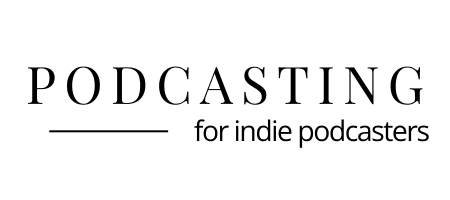
What’s The Perfect Length for Your Podcast Season?
If you’ve ever thought of producing your podcast in seasons, one of your top questions has probably been ‘How long should my podcast seasons be?’
If you want the short answer, here it is: There is no hard and fast rule as to how long a podcast season should be.
It depends on so many factors that we’ll explore in this post.
Deciding on your ideal season length can feel like a challenging task.
You’ll want to consider a range of factors, such as your target audience, the content you’re covering, and your overall podcasting goals.
In this article, we’ll explore the benefits of different season lengths and provide tips on how to determine the ideal length for your podcast.
Defining a podcast season
Before we dive into the ideal length for a podcast season, let’s define what a season is.
A podcast season is a set of episodes released at regular intervals, usually weekly or bi-weekly, that follows a specific theme or topic.
A podcast season can vary in length; with some lasting only a few episodes, while others can go on for months or even years.
The length of a season is entirely up to you as the podcast host. There is no right or wrong answer as to how long your seasons should be.
How to determine the ideal length for your podcast season
Determining the ideal length for your podcast season can feel a bit like answering a complex maths problem.
However, several factors to consider when deciding on the ideal season length for your podcast. And they all come back to one of my favourite words: strategy.
Your target audience
Who are you creating the podcast for, and what are their listening habits?
If your audience wants your content and information quickly, then a shorter season may be more appropriate.
On the other hand, if your audience is loyal and engaged, a longer season could be better.
Your content
If your podcast covers a broad topic, then you might need a longer season to cover everything that you have to talk about.
However, if your podcast focuses on a narrow topic, a shorter season may be more than enough to cover everything.
Additionally, if you’re covering a current event or trend, a shorter season may be necessary to stay relevant.
Your podcasting goals
Are you looking to attract new listeners, retain existing ones, or generate revenue?
If you’re looking to attract new listeners, then a shorter season may be more attractive, as it’s less of a commitment.
However, if you’re looking to retain existing listeners, build a community, or generate revenue, a longer season may be more appropriate, as it provides more opportunities to engage with your audience and promote your sponsors.
Production time
How much time do you have to produce and edit each episode?
A shorter season may be more manageable if you have limited time and resources.
Guest availability
If you’re planning on having guests on your podcast, their availability may dictate the length of your season and your recording schedule.
Competition
What other podcasts are covering the same topic or theme?
I’m not saying to copy what other people in your niche are doing, but researching what is popular might give you a good indicator as to what your audience might expect from your show.
Equally, you might want to do the opposite of what everyone else seems to be doing with their season length to stand out.
Audience feedback
Your show is all about your audience. After all, you could argue that without them you don’t really have a show.
What has your audience said about previous seasons? Have they expressed a preference for shorter or longer seasons? Have you seen listens drop off partway through a longer season?
Use this information to help determine your ideal season length.
The importance of podcast season length
The length of your podcast season is essential for several reasons. First, it sets expectations for your audience. If you release a 10-episode season, your audience knows what to expect.
Second, it allows you to structure your content effectively. A shorter season may require more concise episodes, while a longer season may allow for more in-depth discussions. Finally, it impacts your ability to generate revenue.
Pros and cons of shorter podcast seasons
Shorter podcast seasons, typically consisting of 10-12 episodes, have several benefits including:
- Being more manageable to produce, requiring less time and resources.
- Providing a sense of urgency for listeners, encouraging them to tune in regularly.
- Allowing you to experiment with different formats and topics, keeping your audience engaged and excited.
However, shorter seasons also have some downsides:
- They may not provide enough time to cover a topic adequately, leaving your audience wanting more.
- They may not be as attractive to sponsors, as they provide fewer opportunities for promotion.
Pros and cons of longer podcast seasons
Longer podcast seasons, typically lasting six months to a year, have several benefits including:
- Providing more opportunities to engage with your audience, promoting sponsors and generating revenue.
- Allowing you to cover a topic in-depth, providing valuable insights and information for your audience.
- Providing a sense of continuity, keeping your audience engaged over a more extended period.
However, longer seasons also have some downsides:
- They require more time and resources to produce, making them more challenging to manage.
- Longer seasons risk becoming repetitive or losing momentum, leading to a decline in listenership.
- They may be less attractive to new listeners, who may be hesitant to commit to a more extended season.
Of course, these pros and cons are just my opinions and remember that not every podcaster will see the above as pros and cons!
Tips for structuring your podcast season
Once you’ve decided on the length of your podcast seasons, you need to consider your structure so that your episodes are as effective as they can be.
This means having a clear plan and strategy for your season.
When planning your next podcast season, consider the following:
- Define a clear theme or topic for each episode
- Plan out your episodes in advance
- Use a consistent format for each episode
- Incorporate listener feedback and questions
- Use cliffhangers or teasers to keep your audience engaged
Tips for maximising your podcast’s potential
As well as structuring your podcast season effectively, you also need to include how you’re going to maximise your podcast’s potential in your strategy.
For example:
- Promote your podcast on social media and other channels
- Collaborate with other podcasters or influencers
- Engage with your audience through comments and feedback
- Use SEO best practices to improve your search rankings
- Use analytics to track your audience’s listening habits and preferences
Conclusion
Determining the ideal length for your podcast season can be a challenging task, but you need to remember that there isn’t an actual answer to deciding your ideal podcast season length.
As we’ve talked about, there are a lot of factors that come into play.
Ultimately, though, it is your podcast and you need to be comfortable with your production and publication schedule.
There is no point in committing to a schedule that just grinds you down and makes you fall out of love with your podcast.
Have a try with different season lengths and see what works best for you and your podcast. Evaluate what you liked or disliked about the seasons and combine this with audience feedback to choose an ideal season length for your podcast.







2 Comments
Jenny
This is a great post and such helpful advice for anyone serious about starting a podcast! I’d love to start a podcast but I know i wouldn’t keep up with it and literally wouldn’t know where to start! Maybe in the future! x
Verity Sangan
Thank you! I’m glad you found it useful! Never say never! 😉